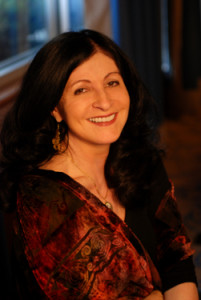Latina poet, fiction and nonfiction writer Judith Ortiz Cofer, will be speaking on Tuesday, April 5, at 7:30 p.m. in the UC Theater as part of the WCU Spring Literary Festival. She will be touching on her stories about coming-of-age experiences in Puerto Rican communities outside of New York City and her poems and essays about cultural conflicts of immigrants to the U.S. mainland.

Judith Ortiz Cofer, critically acclaimed Puerto Rican-American author.
Photo from Google Images
Ortiz Cofer was born in Hormigueros, Puerto Rico, on February 24, 1952, and her family moved to Paterson, New Jersey, in 1956. At 15, her family moved again, except this time it was to Augusta Georgia, where she eventually earned a BA in English from Augusta College. Later she earned an MA in English from Florida Atlantic University and did some graduate work at Oxford University. In 1984, she began teaching at the University of Georgia as the Emeritus Regents’ and Franklin Professor of English and Creative Writing, but retired in December 2013.
In 2010, Ortiz Cofer was inducted into the Georgia Writers Hall of Fame. Her awards include grants from the Witter Bynner Foundation and the Georgia Council for the Arts, as well as fellowships from the National Endowment for the Arts for poetry, the Bread Loaf Writers’ Conference, and the Florida Fine Arts Council.
Her first literary works were in poetry, and one of her early chapbooks, Peregrina, won the Riverstone International Chapbook Competition. Two years later her poetry collection Terms of Survival was published, but it was not until the publication of her first major work of prose fiction, The Line of the Sun, a novel nominated for the Pulitzer Prize, that the author began to receive more critical attention. The Line of the Sun was also the first of Ortiz Cofer’s works to be published by the University of Georgia Press, with whom she collaborated on several other publications. After this successful debut as a fiction writer, she continued to demonstrate her abilities in storytelling through short stories and personal essays, but she also kept writing poetry and published two more collections, Reaching for the Mainland and A Love Story Beginning in Spanish.
She has many literary works ranging from poetry to young adult literature to pamphlets and more, and these writings made Ortiz Cofer one of the first Latina writers to rise to prominence during the 1980s and 1990s and a leading literary interpreter of the U.S.–Puerto Rican experience.
Ortiz Cofer explains that she inherited the art of storytelling from her abuelita, her grandmother, a fact found in many of the powerful attributes of the grandmother character who appears in The Line of the Sun and several of her other narratives.
“When my abuela sat us down to tell a story, we learned something from it, even though we always laughed. That was her way of teaching. So early on I instinctively knew storytelling was a form of empowerment that the women in my family were passing on power from one generation to another through fables and stories. They were teaching each other to cope with life in a world where women led restricted lives,” Ortiz Cofer said in a MELUS interview.
Judith Ortiz Cofer’s most powerful characters consist of Puerto Rican women who try to break away from restrictive cultural and social constructs or who develop survival strategies to deal with the sexism in their own culture.



